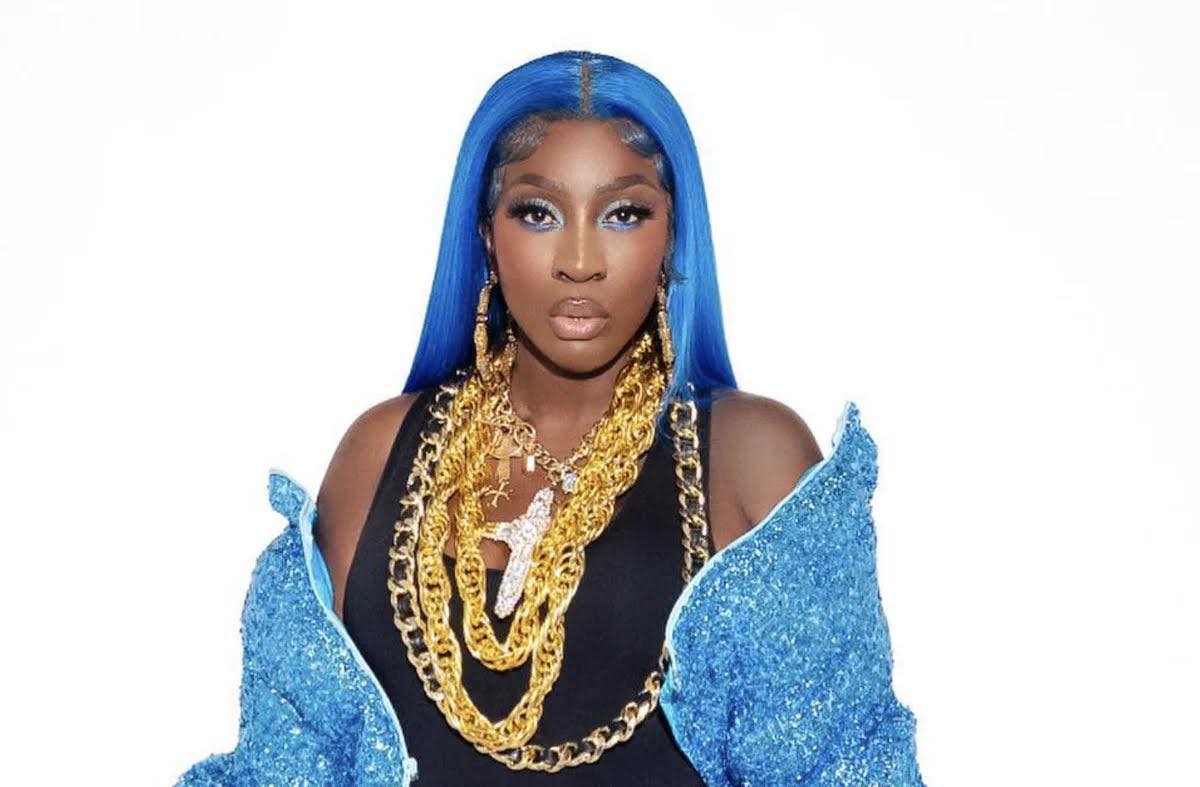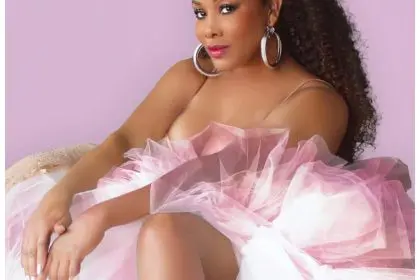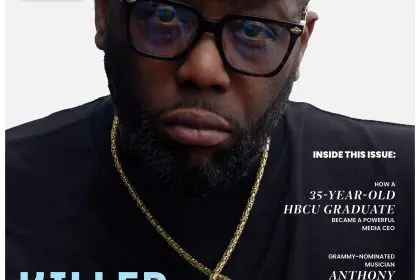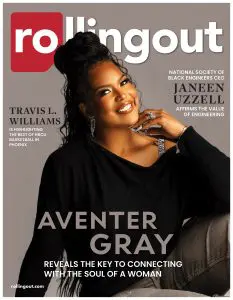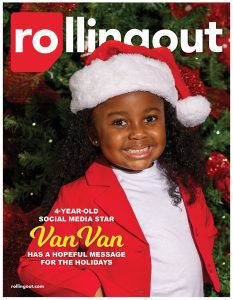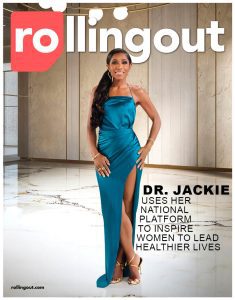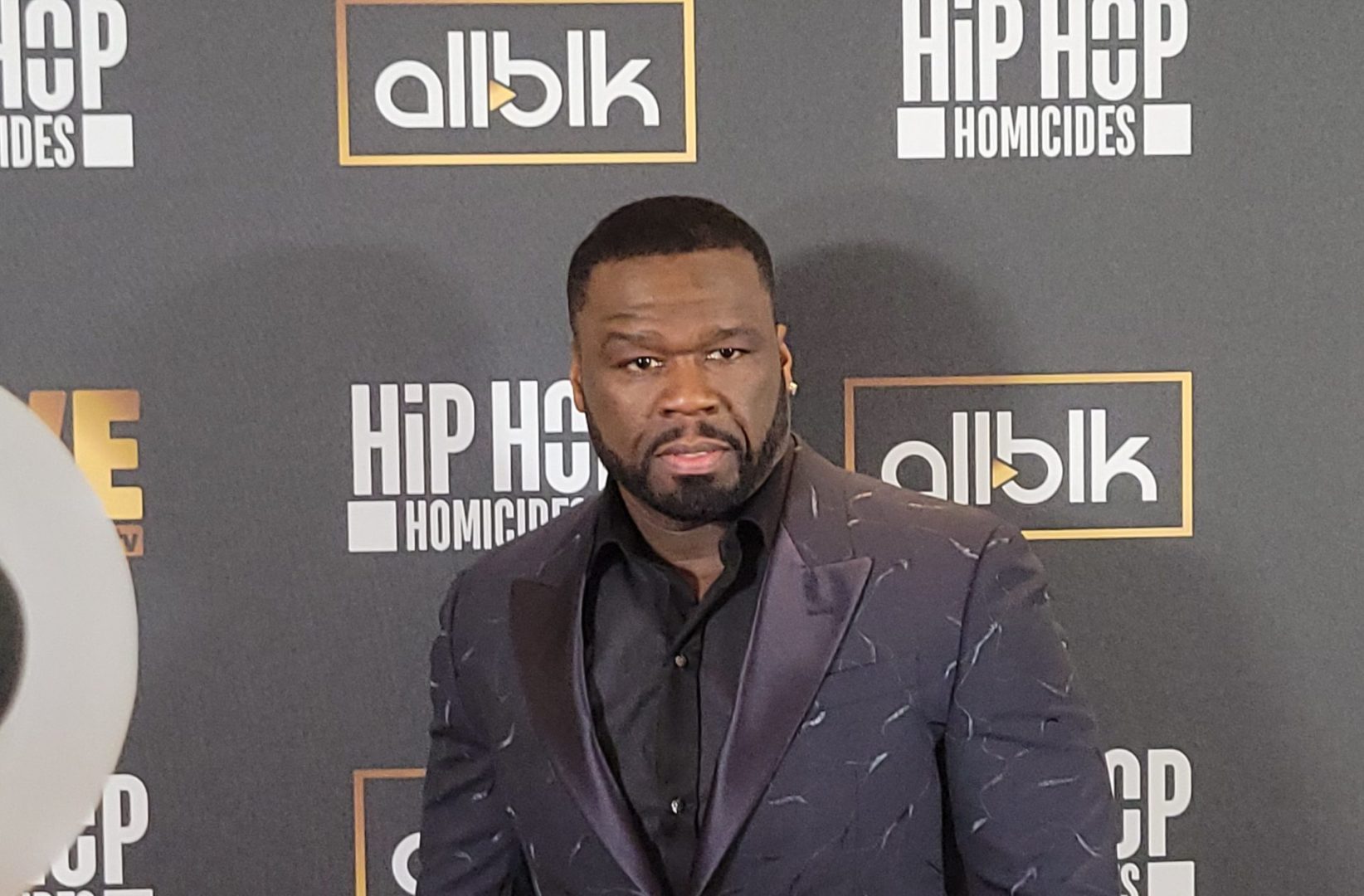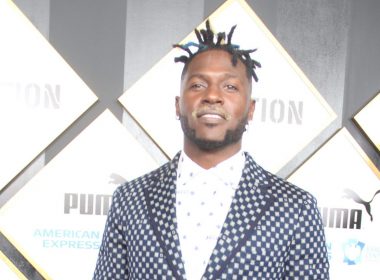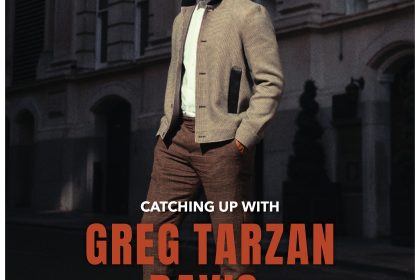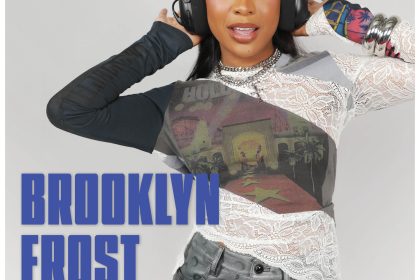The Jamaican dancehall genre has grown from being an alternative expression of music to having massive mainstream appeal. Recognized as a celebration of Black culture and sensuality, dancehall singer and deejay Grace Latoya Hamilton, aka Spice, says it’s been an honor to teach her fans about the origin of Caribbean music.
“My blue hair is my signature and always has been. When people here saw it they thought I was pulling from other artists, so I took the opportunity to educate them on the history of dancehall. The bright colored wigs, gold chains and colorful clothing has always been a part of this dancehall culture,” she explains.
Growing up in Jamaica, reggae and dancehall music were as common as jerk chicken, and as essential to her as the air she breathed.
Spice recalls her father playing Bob Marley and other reggae artists in their home daily. As a little girl, the aspiring artist enjoyed impressing her father and would imitate his favorite reggae artists. It didn’t take long for her Rastafarian father to realize his baby girl had talent.
“I loved dumplings as a little girl and my dad would offer me extra dumplings if I would sing certain songs for him and his friends,” Spice recalls. With her father officially on board as her biggest fan, Spice’s confidence in her voice grew. “My father was the first person to tell me I was going to be a big star and that people would love coming to see me sing for them. As a 7- or 8-year-old, I never forgot that. Although I lost him when I was 9 years old, his words and belief in me sparked something that never died,” she shares.
Spice’s father’s predictions for his daughter’s future came to fruition a few years later when the 13-year-old was allowed to perform at Sting Festival, a huge Jamaican tradition known for creating stars. Although the competition was steep and she was a long shot, she solidified her father’s faith in her ability which was further cemented by artist Bounty Killer. The Jamaican music legend dubbed Spice the Queen of Dancehall.
From that Sting performance, Spice was introduced to Baby Cham and Dave Kelly who gave her her first hit song, “Fight Over Man.” In 2009, Vybz Kartel gave Spice her first international song “Romping Shop,” which opened the door for her to expand her talent and her audiences, working with artists she considered legends. Her appreciation for the achievements of reggae superstar Shaggy and his worldwide success encouraged her to visualize the possibilities for a Jamaican artist.
Spice’s musical career was white-hot and she didn’t have an inkling international fame would come knocking at her door when it did. A friend introduced the Jamaican celebrity to entertainment mogul Mona Scott-Young as a peer who could offer the “Love & Hip Hop” cast an authentic experience on the island.
“I enjoyed working with Mona and liked being around the cameras, etc. As a Caribbean artist, the goal is always to crossover and become international. I realized that this could be a way to introduce my music to a worldwide audience. I auditioned for Mona and her team and shared with them everything I had going on, and the rest is history,” Spice says.
Joining “Love & Hip Hop” was a bigger adjustment than Spice thought and she admits she might not have been aware of some of the potential pitfalls she needed to consider before jumping on the opportunity. For starters, the language barrier between her and castmates as well as viewers proved a much bigger point of contention than she anticipated.
“In Jamaica, we speak Patois, but with the cast and the televised audience, they couldn’t understand me. I realized I had to speak standard English so people would be able to understand, but that caused an issue with my Jamaican fans. Some of them felt like I wasn’t being authentic because I was speaking standard English on the show. That’s just one instance, but I realized over time there are language and cultural barriers and the meaning of certain words and my reactions based on my culture, etc. There are more cultural disconnects than I could’ve realized going in,” she explains.
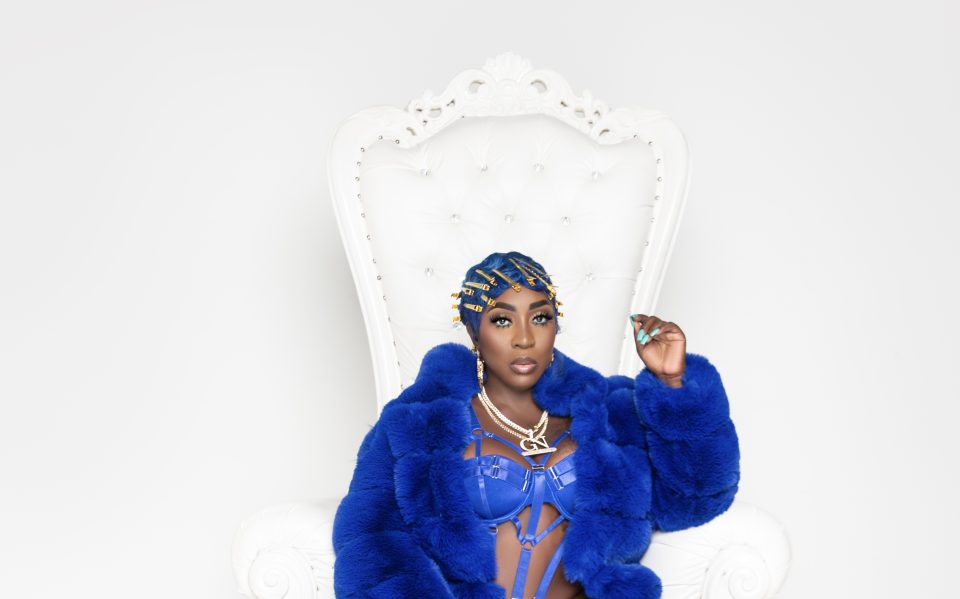
Another issue Spice chose to address on “Love & Hip Hop Atlanta” is colorism.
“There were people who felt I didn’t deserve this opportunity because I wasn’t bleaching my skin. In Jamaica, bleaching is very common. There are people literally destroying their skin in order to appear lighter to have more opportunities or to be considered attractive. Colorism isn’t about race or culture, it’s simply how much melanin you have in your skin — and the more you have the less deserving you are often considered,” Spice shares.
In 2020, Spice made an extreme statement for her single, “Black Hypocrisy” and appeared in photos with what appeared to be bleached skin and blonde hair. The stunt was considered shocking, but Spice felt vindicated.
“It got people talking and that was my goal. There are so many women whose self-esteem is not where it should be because they are secretly dealing with the biases of colorism. I want these women to have a voice and to feel better about themselves. It all starts with conversation,” Spice says.
The colorism conversation continued on “Love & Hip Hop” exploding last year when her castmate Erica Mena was fired after using a racial slur in a disagreement with Spice. The confrontation went viral and again ignited a national conversation on colorism and racial biases.
“I see so many contradictions on television. If there is a confrontation with me and a lighter-skinned woman we could have the same conversation, but I’ll be labeled as the angry Black woman or difficult, compared to the other woman being seen as just being upset or given a pass for her actions. As long as colorism exists, we have to keep discussing it, even if it’s painful,” Spice shares.
Spice is eagerly preparing to celebrate Caribbean Heritage Month and releasing new music this summer. Her upcoming album is a celebration of 25 years in dancehall.
“I’m celebrating 25 years in music and life. I had a near-death experience last year that gave me the opportunity to grow closer to God. I have a book coming out that’s a navigational yearly planner. I’ve been blessed to overcome so much pain and trauma that I want to help others do the same thing. There’s been so much growth and learning over the last few years and I’m excited to share that with my fans,” Spice says.
Images by Mackinley Madhere from Spex Photography

